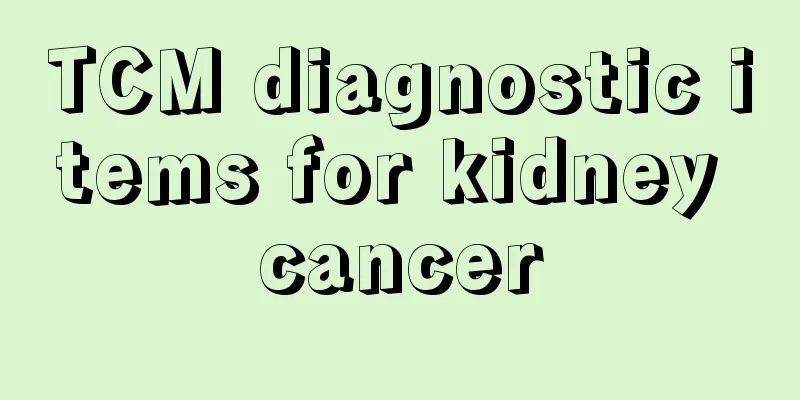Five major symptoms of early colorectal cancer

|
Early stage colorectal cancer may involve five major symptoms such as abnormal bowel movements, blood in the stool, and abdominal pain. These signals suggest that you should seek medical attention as soon as possible to avoid worsening of the disease. In daily life, you should also pay attention to diet, exercise, and other cancer prevention and control measures. 1. Changes in bowel habits Early colorectal cancer often manifests as an increase or decrease in the frequency of bowel movements, or alternating between stubborn constipation and diarrhea. This is because cancer affects intestinal peristalsis. If the bowel movement pattern changes for more than two weeks without reason, you need to go to the hospital for examination, such as colonoscopy or intestinal imaging examination. 2. Bloody or black stools Early rectal cancer may cause blood in the stool, which may be bright red or dark red, especially when the cancer ruptures in the intestinal cavity. Chronic bleeding caused by cancer may manifest as black stool or symptoms of anemia due to chronic blood loss. When seeking medical attention, early signs of bleeding can be screened out through a stool occult blood test. 3. Abdominal pain or discomfort Tumors growing in the intestines may cause obstruction or local inflammation, irritating the intestinal wall, which can manifest as abdominal pain, discomfort or bloating. This symptom can easily be mistaken for gastroenteritis or common intestinal problems, especially if it recurs repeatedly. 4Weight loss and fatigue Cancer causes continuous consumption of the body, which may manifest in the early stages as unexplained weight loss and fatigue. If there is no significant change in diet or lifestyle habits recently, but the weight is dropping dramatically, a detailed examination should be conducted as soon as possible, such as blood tumor marker testing or imaging examinations. 5Anemia and other systemic symptoms Long-term chronic blood loss may cause anemia, which is manifested by paleness, dizziness, and extreme fatigue, and in some patients, fever. These systemic symptoms suggest the need for a comprehensive health examination. Paying attention to these signals can help detect colorectal cancer early and improve the cure rate. People should also focus on a high-fiber diet and stay away from high-fat and high-salted foods. They should also have regular physical examinations, especially those with a family history of cancer. High-risk people should undergo colonoscopy every year. When suspicious symptoms occur, it is particularly important to seek medical attention in a timely manner, which may be an important step in saving lives. |
<<: Can waist CT detect bone cancer?
>>: What are the early symptoms and signs of uterine cancer?
Recommend
What should I do if my heel is broken
If people walk for too long every day, their heel...
Does a positive blood culture mean sepsis?
Sepsis is a relatively serious disease, which mai...
What should I do if I sweat a lot recently
When the weather is hot, people tend to sweat a l...
What is the correct way to apply aloe vera on your face
Aloe vera is a common herb and is widely used in ...
What are the symptoms of digestive tract diseases
There are many symptoms of digestive tract diseas...
Can liver nodules be cured? Are liver nodules easy to treat?
What are liver nodules? A nodule is a hard lump u...
What should I do if I have oily earwax and underarm odor? What is the relationship between the two?
Generally, friends who have oily earwax will also...
How to relieve itchy hands after cutting yam?
Yam is a very common food in our lives. Yam is ri...
Ten doctors’ heartfelt words
Due to the particularity of the medical professio...
Can I do sit-ups to reduce belly fat?
If we can persist in doing sit-ups in our daily l...
Can endometrial cancer be inherited?
Inheritance, will endometrial cancer occur in pat...
What should I do if my tonsils have aging pus
Aging pus in the tonsils is actually a common pro...
Determine the radiotherapy plan for bone cancer based on the purpose of treatment
Radiotherapy is a commonly used auxiliary treatme...
Causes of blackening of nail edges
The health of the body is related to many factors...
What foods can kill pancreatic cancer cells
Many people think that snacking is a bad habit. I...









